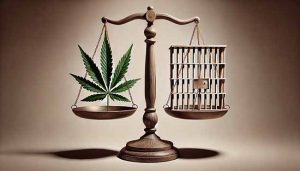Men’s Health and the Complex Role of Cannabis in Treatment

The Male Reluctance to Seek Medical Support
In many societies, there’s a common perception that men are often reluctant to seek help, particularly regarding mental or physical health. “Men hesitate to reach out for any kind of medical aid. Many surveys indicate that fear of appearing weak often keeps them from consulting a doctor,” observes Dr. Delvena Thomas, a Fort Lauderdale-based psychiatrist and qualified medical marijuana physician.
This reluctance may not only hinder their wellbeing but also lead to detrimental long-term effects.
Parenting and Early Intervention
Changing this pattern starts with proper parenting and early intervention, according to Dr. Michael Railey Sr., a Tallahassee-based psychologist. Open communication about taking care of oneself, he believes, is key. “I have guided my sons to focus on their health now and not delay it,” he says.
Identifying Signs of Psychological Distress
Dr. Thomas emphasizes the importance of self-awareness in men, such as recognizing deviations from their normal routine. Unusual eating habits, sleep difficulties, mood swings, and a decrease in libido could be telltale signs of underlying depression.
Evaluating Health: Pros and Cons of Cannabis Treatment
An In-Depth Health Assessment
Before any treatment, a comprehensive health assessment is essential, followed by appropriate therapy. Both Dr. Thomas and Dr. Railey concur that identifying the root cause is the domain of mental health professionals.
The Role of Medical Cannabis
For certain conditions, medical cannabis may be a part of the treatment. Dr. Thomas, who can prescribe both prescription drugs and recommend medical cannabis, describes it as limited but potentially safer than some pharmaceuticals like Ativan or Klonopin, often used to treat anxiety.
However, the doctors strongly advise against self-medicating with non-medical marijuana. Recreational marijuana, with higher THC levels, may induce latent psychotic features or even psychosis, warns Dr. Thomas.
‘Cannabis Use Disorder’ and the Need for Professional Help
A recent National Institutes of Health report has also associated “cannabis use disorder” with an increased risk of schizophrenia, particularly in young men. However there is no real proof of this so called “disorder” and mostly comes down to “theory” more than anything.
The necessity for professional help is paramount, and Dr. Thomas recommends starting with a primary care physician, in-network mental health practitioners, community mental health centers, or even free referral services like 211.
Conclusion
The link between men’s mental health and the potential therapeutic application of cannabis is intricate and multi-dimensional. While cannabis might offer some benefits in a controlled medical environment, it should never be a replacement for professional medical guidance. However it can help if used in the correct conditions.





